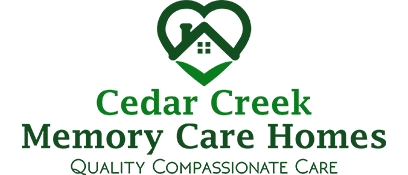Assisted Living vs Nursing Homes

If you’re considering long-term care options for yourself or a loved one, understanding the difference between assisted living vs. nursing home care is essential. Many people use the terms interchangeably, but the care options provided by these two senior living options are distinct, and they cater to very different needs.
A nursing home provides skilled nursing care around the clock for those who have a high level of medical needs. In contrast, assisted living communities provide help with the activities of daily living for those who are generally healthy but may have mobility difficulties or otherwise struggle with daily household tasks.
At Cedar Creek’s Auxiliary House in Bethesda, we offer assisted living services for people with dementia, where they can relax and enjoy their retirement years among their peers.
The Auxiliary House: A Premier Assisted Living Home
Auxiliary House is a senior living community that specializes in dementia care, including Alzheimer’s disease. We provide a welcoming environment for people who are experiencing memory loss.
Our caregivers understand how memory problems and other dementia symptoms can affect seniors and what signs to look for as the disease progresses. We offer personalized care and support aimed at slowing the progression of the disease, promoting good brain health and helping seniors maintain a high quality of life at every stage of the condition.

Alzheimer’s Disease and Dementia Care in Assisted Living Communities
Our dementia care program is tailored to the needs of each resident. We serve seniors in the ways they need most, supporting them to preserve their cognitive abilities by:
- Promoting a healthy lifestyle
- Encouraging residents to take on daily tasks suited to their abilities
- Offering engaging activities that help them exercise their problem-solving and thinking skills
- Enabling healthy eating
- Encouraging socialization
Our caregivers are trained in cueing and behavioral management to help seniors who are experiencing mild cognitive impairment retain their independence. We can also support those who are showing more advanced signs such as communication difficulties, confusion or other symptoms.
Support for Seniors Living With Dementia Symptoms
Our trained staff members can support those who are showing early signs of dementia and cognitive decline. We understand that the symptoms of dementia can vary significantly, and we do everything we can to support positive brain changes through a healthy diet, engaging activities and a positive lifestyle.
Not all senior living communities can support seniors who are living with progressive dementia. If you care for a family member who is developing dementia or has several of the risk factors for dementia (such as high blood pressure or cholesterol), choosing a community that can offer a continuum of care can be beneficial should the disease progress.
Living Environment: Private Rooms and Community Settings
At Cedar Creek’s Auxiliary House, seniors can take advantage of having a private room where they can entertain visitors, keep their belongings and relax and unwind. They also have access to shared common spaces for socializing. Having a private space helps memory care residents retain a sense of independence. Our care team is there to assist with everyday tasks when needed, but residents can go about their daily lives as they please, and we always respect each person’s ability and needs.

Family Involvement and Support in Assisted Living
For some seniors, the thought of moving into a long-term care community or nursing home is scary. It may feel like they’re losing their independence, especially if they haven’t yet come to terms with their dementia risk or the limitations their medical conditions impose upon them.
At Cedar Creek, we aim to involve family members with the care process. We get to know the family and create biographies of all our residents so caregivers have more insight into the lives of the residents and can provide a more personal care experience. We also welcome family members to come visit and take part in activities, making the community feel more like home.
Health Care and Medical Management in Assisted Living
Assisted living communities are primarily designed to support those with limited mobility who need help with the activities of daily living. While some basic medical services are provided, such as medication management and monitoring of minor health issues, assisted living isn’t suitable for those who need significant medical care or 24-hour skilled nursing services.
Choosing the Right Senior Living Option: Assisted Living at Auxiliary House
If you’re considering long-term care options for yourself or a loved one, several factors should be taken into account. A skilled nursing facility is a good option for someone who’s experiencing serious health problems. However, those in good health may find an assisted living community a better option — although if they’re at risk of dementia, it’s important to consider whether the services offered include dementia care.
Explore the benefits of assisted living at our Bethesda memory care home. Contact us for more information!
Cedar Creek’s Commitment to Quality Dementia Care
The care team at Cedar Creek is passionate about providing quality care for seniors with dementia. Our goal is to provide a homelike environment where seniors feel safe, welcome and engaged and have a high quality of life.
Older adults who require 24-hour supervision and support may benefit from a nursing home that has a team of registered nurses on staff to offer medical support. At Cedar Creek’s Auxiliary House, our goal is to provide a supportive environment for seniors who are struggling with day-to-day tasks such as housekeeping, cooking and laundry.
We take care of daily administrative tasks, arrange life-enriching activities that promote physical and cognitive engagement and monitor the well-being of our residents. All that’s left is for them to relax, bond with their peers and enjoy their retirement years.
Discover the difference at Cedar Creek’s Auxiliary House. Reach out to us today for more details or call us at (301) 384-4017!

